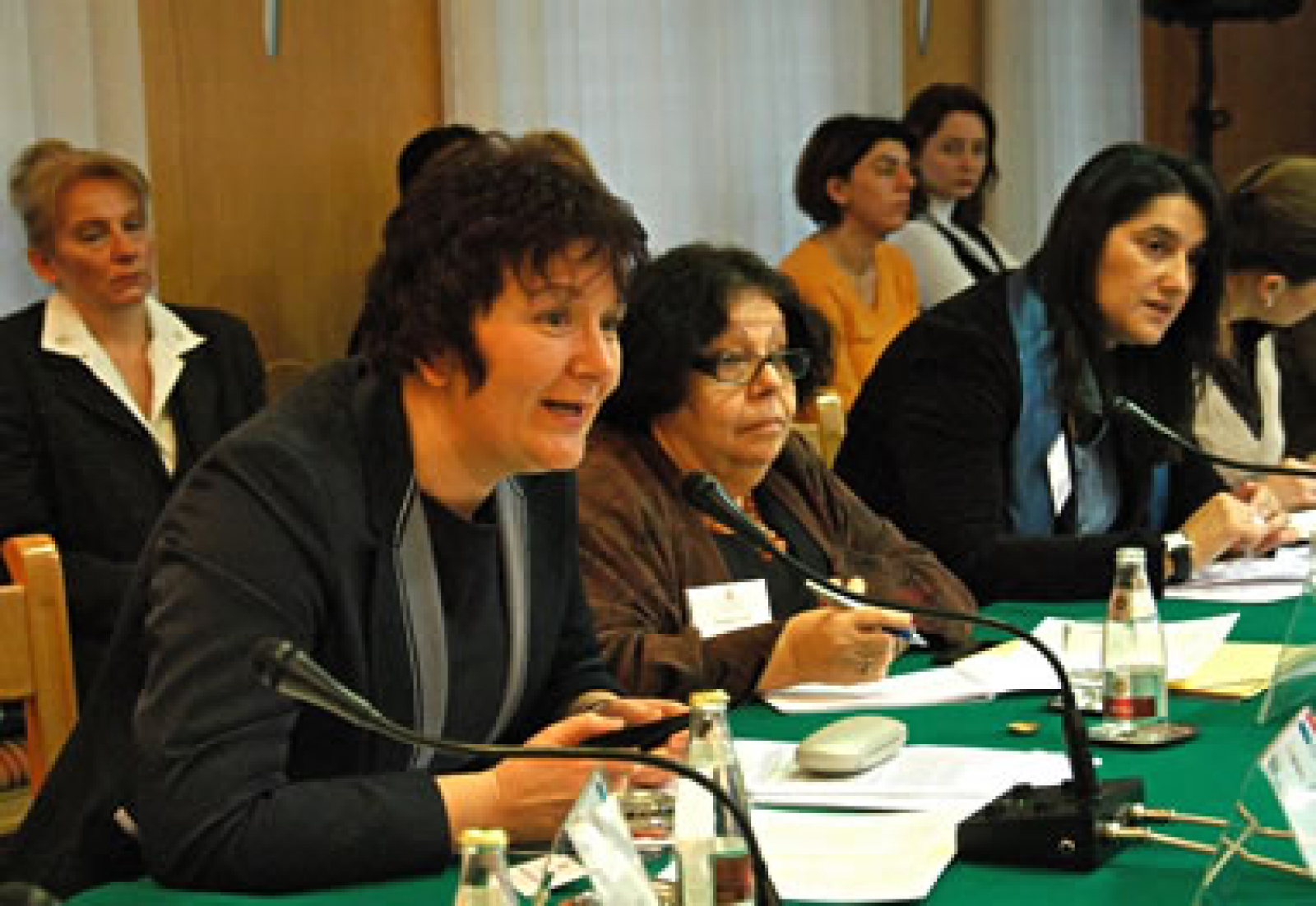
SHARE
The resounding victories of pro-Europe reformers in Serbian presidential and parliamentary elections last year emphatically confirmed citizens’ desire to begin the process of accession to the European Union. But passage of necessary legislation for EU membership has been obstructed by lingering anti-European factions within the Serbian parliament, and only nine of the 75 items of legislation necessary for accession have been passed.
There is not good understanding among lawmakers, and the public at large, about what EU membership will realistically entail. The community of nongovernmental organizations (NGOs) has been largely absent from helping citizens understand the process and the media has taken a generally sensationalist approach.
To help deal with these challenges, NDI and the Embassy of France, which held the EU presidency at the time, convened a public forum in Belgrade in December that included 17 members of parliament (MPs) representing six political parties, journalists and NGO leaders. The forum, entitled The Role of Parliament, NGOs and the Media in Serbia’s EU Integration Process, discussed ways in which each sector could work together to better educate and engage Serbian citizens in a national discussion about EU integration.
The forums represent the latest in NDI’s ongoing efforts to convene the often-disparate world of citizens, NGOs, and elected representatives to address and resolve the challenges facing a country that aspires to the status of a mature, European democracy, but that only eight years ago was stifled by autocratic rule. Since 1997 and with funding from the U.S. Agency for International Development (USAID), NDI has provided technical assistance to political party and civic activists working for democratic change in Serbia. Through its current, four-year program, NDI supports political parties, parliamentary caucuses, civic groups, and other institutions in initiatives that connect citizens to elected officials.
As the culmination of a series of three parliamentary forums on EU policies that began in October 2007, the December event brought together policymakers, members of the European parliament, ambassadors, representatives of the European Commission, and domestic and international civic leaders for a frank discussion of the challenges and opportunities facing Serbia as it seeks EU membership.
In candid exchanges, several participants criticized MPs for their inability to make parliament a functioning legislative body, though some parliamentarians turned the tables and challenged the media to increase the quantity and quality of its coverage of constructive work being undertaken by the government and parliament. They argued that the media is too focused on scandals and irrelevant stories that feed cynicism and erode public confidence about Serbia’s future.
All parties agreed that decentralization and diffusion of power to local communities should be the government’s primary concern regarding EU integration. Sonja Licht, president of the Belgrade Fund for Political Excellence (BFPE), argued for “an all-party EU Integration Committee that will shepherd decentralization legislation, as well as collaboration with NGOs and the media to ensure the public is aware of the importance of decentralization to Serbia’s political, economic, and cultural progress.”
The spirited debate also produced several recommendations for parliament to increase Serbian interest in the EU integration process. Participants urged MPs to achieve greater transparency through formal voting records; regular briefings for NGOs, citizens and the media; and a website that allows access to all relevant documents. Participants also proposed skills training for media and the creation of a television station called the Parliamentary Television Channel (PTC).
In early February, NDI, in cooperation with the UN Development Project (UNDP), the Organization for Security and Cooperation in Europe (OSCE) and the Council of Europe (CoE), plans to convene a working group of MPs, parliamentary staff and journalists that will continue to explore ways to build professional and productive relationships.
Pictured above: Participants at a public forum on the role of parliament, NGOs and the media in Serbia’s EU integration process. From left to right: Snezana Stojanovic-Plavsic, member of the Serbian parliament; Sonja Licht of the Belgrade Fund for Political Excellence; and Aleksandra Knez-Milojkovic of Environmental Ambassadors, a nongovernmental organization.
–
Published on Feb. 3, 2009


